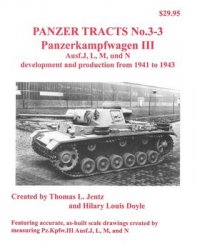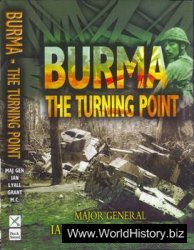Historians of Cuban foreign policy after 1959 are crippled by the fact that the Cuban archives are closed. The Cubans have declassified documents only on the missile crisis (see section 4 of this bibliography). Unless otherwise noted, none of the studies listed below uses Cuban documents.
The best biography of Fidel Castro, by far, is Tad Szulc's Fidel: A Critical Portrait (New York: Avon Books, 1987). Two more recent works should be noted: Leycester Coltman's The Real Fidel Castro (New Haven, CT: Yale University Press, 2003) combines insights with factual errors; Ignacio Ramonet's Cien Horas con Fidel, 3rd rev. ed. (Havana: Oficina de Publicaciones del Consejo de Estado, 2006) is a very lengthy interview with Castro. Jon Lee Anderson's Che Guevara: A Revolutionary Life (New York: Grove Press, 1997) uses a few Cuban documents but is of very uneven quality.
Three accounts of foreign policy written by Cuban protagonists are particularly valuable: Ernesto Che Guevara's Pasajes de la guerra revolucionaria: Congo, ed. Aleyda March (Barcelona: Grijalbo, 1999) is Guevara's history, written for Castro, of the Cuban column he led in eastern Zaire in 1965; Jorge Risquet, El segundo frente del Che en el Congo. Historia del batallon Patricio Lumumba, 2nd rev. ed. (Havana: Abril, 2006), is a very well-documented and compelling account of the activities of the Cuban column that Risquet led in the former
French Congo in 1965-66; Jose Gomez Abad, Como el Che burlb a la CIA (Seviha: R. D. Editores, 2006), which is written by a member of the Cuban intelligence services, is the only study of Cuban support for armed struggle in Latin America that is based on a large number of Cuban intelligence documents.
The best history of Castro's Cuba is Richard Gott, Cuba: A New History (New Haven, CT: Yale University Press, 2004). Aleksandr Fursenko and Timothy Naftali, “One Hell of a Gamble”: Khrushchev, Castro and Kennedy, 1958-1964 (New York: Norton, 1997), is the only study of Cuban-Soviet relations that relies on an important number of Soviet documents, but unfortunately it is marred by serious factual mistakes about the Cuban revolutionary process. For later years, see Jacques Levesque, L’URSS et la revolution cubaine (Montreal: Presses de la Fondation Nationale des Sciences Politiques, 1976).
The best studies on US-Cuban relations are Wayne Smith, The Closest of Enemies: A Personal and Diplomatic Account of US-Cuban Relations since 1957 (New York: Norton, 1987), which focuses on the Carter years, and Lars Schoultz, That Infernal Little Cuban Republic: The United States and the Cuban Revolution (Chapel Hill, NC: University of North Carolina Press, 2009). Also useful are Morris H. Morley, Imperial State and Revolution: The United States and Cuba, 1952-1986 (Cambridge: Cambridge University Press, 1987), and Don Bohning, The Castro Obsession: U. S. Covert Operations against Cuba 1959-1965 (Washington DC: Potomac, 2005). Henry Ryan, The Fall of Che Guevara: A Story of Soldiers, Spies, and Diplomats (New York: Oxford University Press, 1998), is the best study of the US response to the guerrilla insurgency in Bolivia led by Che Guevara. The only valuable study on Cuban-West European relations is Alistair Hennessy and George Lambie (eds.), The Fractured Blockade: West European-Cuban Relations during the Revolution (London: Macmillan, 1993).
Boris Goldenberg's, Kommunismus in Lateinamerika (Stuttgart: Kohlhammer, 1971), is a superb analysis of the impact of the Cuban revolution on the Communist movement in Latin America in the 1960s. Richard Gott's Rural Guerrillas in Latin America (Harmondsworth: Penguin, 1973), is the best book on armed struggle in Latin America in the 1960s. Regis Debray's La critique des armes, 2 vols. (Paris: Seuil, 1974), covers armed struggle in Latin America in the 1960s and early 1970s and is based on the author's privileged access to several guerrilla leaders and to Cuban officials. Also valuable is Daniel James (ed.), The Complete Bolivian Diaries of Che Guevara and Other Captured Documents (New York: Stein and Day, 1968). Che Guevara's Bolivian diary, however, is far less informative than his account of the operation in Zaire; of the other captured diaries included in the volume, the most interesting is by Pombo.
Since 1994, I have been able to conduct research in the dosed Cuban archives and photocopy thousands of pages of documents, mainly on Africa, but also, increasingly, on Cuba's relations with the Soviet Union. See especially "The View from Havana," in Gilbert Joseph and Daniela Spenser (eds.), In From the Cold: Latin America’s New Encounter with the Cold War (Durham, NC: Duke University Press, 2008), 112-33, "Cuba and the Independence of Namibia," Cold War History (May 2007), 285-303, "Moscow's Proxy? Cuba and Africa 1975-88," Journal of Cold War Studies (Fall 2006), 98-146, Conflicting Missions: Havana, Washington, and Africa, 1959-1976 (Chapel Hill, NC: University of North Carolina Press, 2002), "Truth or Credibility: Castro, Carter, and the Invasions of Shaba," International History Review (Feb. 1996), 70-103.
Three additional works, though not focusing on Cuba, shed light on Cuba's foreign policy: F. J. du Toit Spies' Operasie Savannah. Angola 1975-1976 (Pretoria: S. A. Weermag, 1989), Sophia du Preez's Avontuur in Angola. Die verhaal van Suid-Afrika se soldate in Angola 1975-1976 (Pretoria: J. L. van Schaik, 1989), Nancy Mitchell, "Race and Realpolitik: Jimmy Carter and Africa" (forthcoming). Spies and du Preez offer the only two studies of the South African operation in Angola in 1975-76 that are based on South African documents. Mitchell combines an unprecedented array of sources and a sophisticated analysis to offer what is by far the best study on Carter's policy in Africa. She also has significant access to Cuban documents. (See also Mitchell's "Tropes of the Cold War: Jimmy Carter and Rhodesia,” Cold War History, May 2007, 263-83.)




 World History
World History









